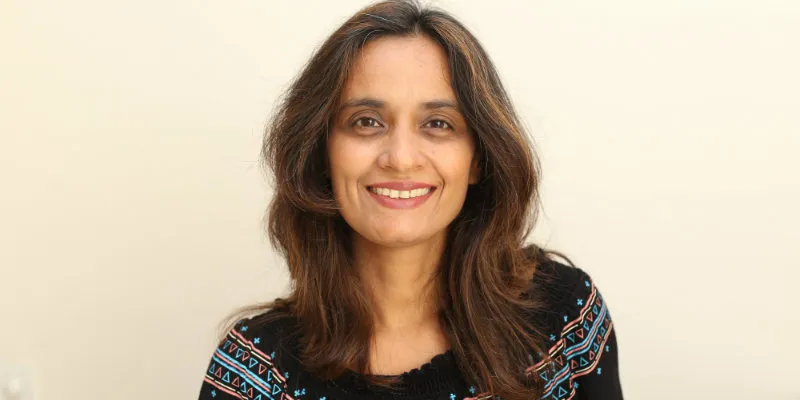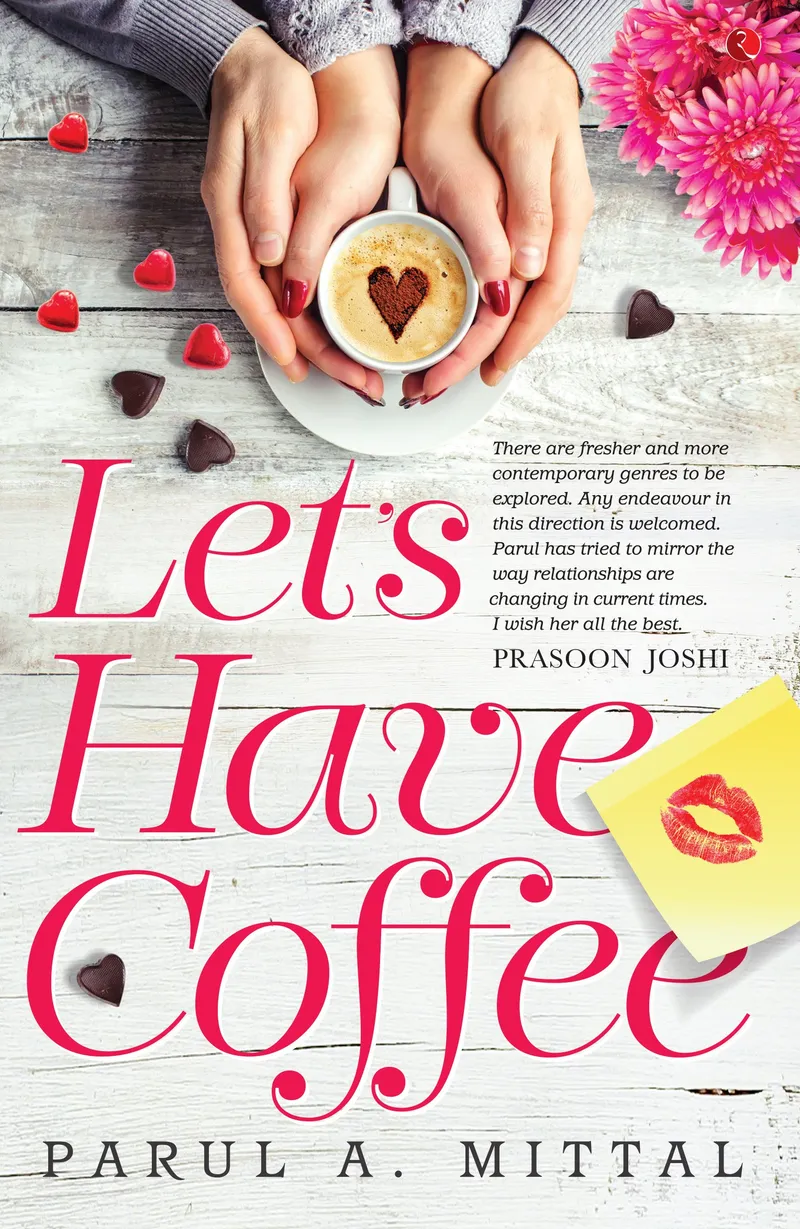‘Let’s Have Coffee’ and talk love, sex and relationships
This new book by Parul Mittal is an interesting take on love and relationships in our times. Funny and witty, it looks at love from both the male and female points of view.
We have all grown up on fairytale romances, where boy-meets-girl, boy-breaks-up-with-girl, boy-and-girl-reunite-in-the-end, or not, with a couple of sinister or humorous characters thrown in for good measure.

The fact is chick lit — whether it’s the good-old Mills & Boon romances or Sophie Kinsella’s Shopaholic series — has always found resonance among different age groups. They are breezy reads and, well, who doesn’t love a good love story?
This book is all about love and relationships too. Meha works as an assistant wedding planner at an ex-boyfriend’s wedding. She encounters a handsome wedding photographer, Samir, a flirt who reveals that the bride happens to be his ex. But when Meha finds out that Samir is using their relationship only as material for his novel, she leads him to believe he means nothing to her. While this chapter closes, life has other plans for Meha. She gets back with Samir on an online reality show, getting into a live-in relationship with him. Will she find true love in a world full of complex relationships?
Let’s Have Coffee, a book by Parul Mittal, explores the dynamics of relationships, love and sex in changing times. This is Parul’s third book, after Heartbreaks & Dreams! – The Girls @ IIT, and Arranged Love.
In an interview with YourStory, the author speaks about the premise behind her third book, the popularity of the chick-lit genre, and how humour has influenced her writing.

YourStory: What prompted you to write this book?
Parul Mittal: Every three years, I get this itch to write a book and tell a story. In 2014, when I was looking for a plot for my third book, I chanced upon a piece on the new ‘Invisible Boyfriend’ app in a business daily. The app promised every girl an opportunity to live her dreams, while it fulfills all obligations of a boyfriend on social media for her friends and family. You no longer needed to get married because of societal pressures. I was intrigued by this unique concept. The article also discussed various other dating apps available for Indian youth. It got me to wonder how I would behave if dating and sex were so accessible and acceptable when I was in my twenties. Would I be dating lots of guys or would I still be waiting for my soulmate to sweep me off my feet? What have I missed out in my life? Look at me. I am in love with the same guy for 15 years. Is my belief in love outdated and overrated? Why do people get and stay married?
I set out to seek answers to these questions for my own self, for my unshakeable belief in love, and for the sake of my marriage, and that’s how this book came about.
YS: How is it different from your other two books?
PM: Let’s Have Coffee is different from my previous two books, Heartbreaks and Dreams and Arranged Love, in many ways. For one, it uses a witty, easy-flowing, conversational style of writing. It reflects the pulse of the current generation and its casual attitude towards everything in life. It’s also my first novel that is not a reflection of my personal life story.
However, it is a light read with relatable and realistic characters, like my previous books. I also like my stories to show different perspectives and, hence, my characters always reflect the different voices in the reader’s mind.
YS: What's the premise behind the book?
PM: Let’s Have Coffee is a fast-paced, humorous account of today’s generation and its casual attitude towards love, sex and marriage. Love is an overrated concept. Sex is as casual as having coffee (that’s where the title comes from). And marriage is only a nice-to-have.
The story unfolds through the eyes of its narrator, Meha, a young entrepreneur, who is seeking ‘foreverwala’ love in a world where relationships can be as brief as the messages we send each other and where we are spoilt for choices, just like the screensaver on our phones.
It’s about navigating through a world where we jump to quick assumptions driven by our insecurities that are built on the foundation of a desirable life sold to us, and where reality and the virtual world are often confused.
YS: Are the characters inspired by anyone in real life?
PM: This is my first work of pure fiction and I did a lot of research to make the plot and characters realistic. For over three months, I talked to youngsters and listened to their stories. I was pleasantly surprised that people were willing to share their desires and fears, over the phone. I figured I must be a good listener, or perhaps it’s just easier to share stories with a stranger. It’s the people closest to us, very often our own self, who we hide from.
While all my characters are realistic, there is no one-to-one mapping of a character to a real-world person. Every character is an amalgamation of someone’s nuance and someone else’s situation and yet another person’s physical appearance.
YS: Do you think chick lit as a genre is popular in India?
PM: The chick-lit genre is definitely more popular than movies on women-oriented topics in India. But we still have a long way to go where female protagonists get their due attention in society.
While most chick lit allow you to escape into a world where everything is typecast, I like to have surprises around every chapter and characters that are not standardised.
Interestingly, while my book’s protagonist is in her twenties, I am glad that my book is being liked by women (and some men) across age groups – some of whom are not necessarily avid readers.
YS: Why did you choose to write in this genre?
PM: I love writing about relationships. I feel they hold the key to happiness and define us. Relationships are the fabric of a society. So with the changes in the society that have come about in last five to seven years, and because I have a strong analytic bent of mind, I felt compelled to examine how relationships are changing in the fast-paced, multi-tasking, online world that we inhabit today.
I am also a big believer of love. I believe (as does the wild-rose fragrant Samir in the book) that each positive moment we share with others is love.
YS: Is love really overrated in today's world?
PM: This is a tough question to answer. I know I set out to explore the answer to this question but it’s not so straightforward. The meaning of love has certainly changed. People are no longer seeking or waiting for their soulmate like the movies propagated in the nineties. There is much more openness. Societal expectations have also changed. Virginity is not on the wedding gift list anymore.
Just like the choices in the online shopping world, people have more choices when it comes to partners, they are exploring more, and they are used to free returns within 15 days, no questions asked, whether it’s a deodorant or a date.
We still want the ideal partner, but as we are used to instant gratification, we don’t always have the patience and persistence it takes to get one.
YS: Do you have any particular inspirations that influence your writing process?
PM: I start out with multiple story ideas and character sketches. I then take feedback from my target customer (and, of course, the publisher who will invest in my project), and narrow it down to one final plot. I research it further and then detail my characters on a Word document. I map each character to multiple real-world people I know so I can get into the character easily while writing. I do a chapter-by-chapter outline before I start filling in the details. However, I do allow myself creative licence to change things along the way.
I also try to set targets in terms of number of words per day, week and month so as to complete my book within a definite time period.
YS: What role does humour play in your life, and how has it influenced your writing?
PM: I grew up as a serious person with little exposure to humour. My husband had a hard time making me see his sense of humour, which I would often mistake as criticism. Over the years, I have learnt to take things lightly. I realised how humour makes every situation in life much lighter and more bearable. It also makes you much more interesting and desirable as a person.
Just like in personal life, in my writing too I have grown to employ humour over the years. Let’s Have Coffee is written in a casual and witty conversational tone. My characters don’t mope around complaining and crying when the going gets tough. I use light-hearted banter and analogies that I hope will bring a smile to the reader’s face.







